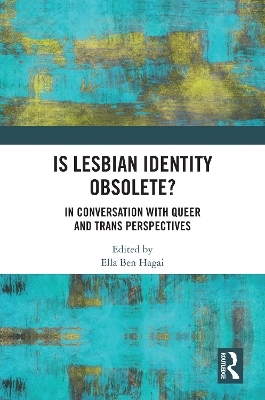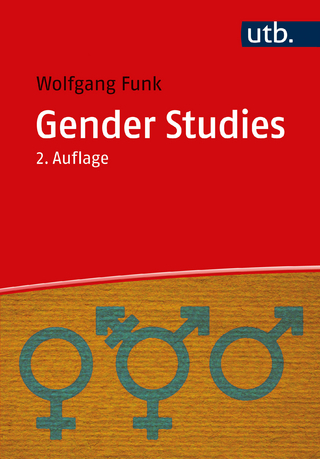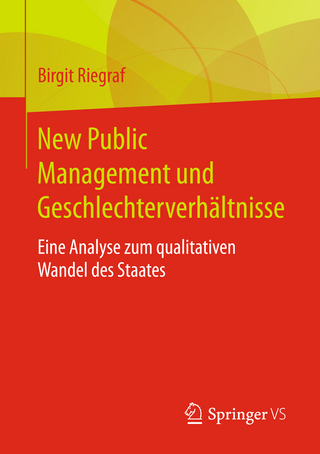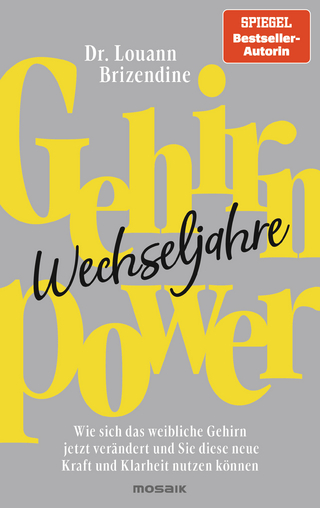
Is lesbian Identity Obsolete?
Routledge (Verlag)
978-1-032-44255-6 (ISBN)
This cross-disciplinary book engages with the provocation, "Is lesbian identity obsolete?". In this volume, researchers offer diverse perspectives on the question of lesbian identity past, present, and future. This eclectic, multidisciplinary compilation composed of chapters and shorter commentaries helps readers understand the roots of conflict and current tensions between the queer and the trans movements and the lesbian community.
Using a historical lens, authors examine the 1970s lesbian communities' practices of racial and trans inclusion and exclusion. Several contributions from across the social sciences utilize qualitative and quantitative methods to illuminate the shifting meaning of lesbian identity today. These contributions help explain why some cis and trans women and nonbinary folx come to either be attached to or disavow lesbian identification. An additional set of chapters engage in theoretical analysis to explore the fraught relationship between queer theory and lesbian thought and the importance of lesbian theory in the formation of transgender scholarship. This collection's eclectic engagement with the question of lesbian identity's obsoleteness helps draw an ethical blueprint for a more sustainable, inclusive, and coalitional future for lesbian communities and identities.
This book will be of great value to students, researchers and scholars in the fields of Sociology, Psychology and Anthropology including Gay and Lesbian studies as well as the intersectionality of gender and sexuality. The chapters in this book were originally published in the Journal of Lesbian Studies.
Ella Ben Hagai is Assistant Professor of Psychology at California State University, Fullerton, USA. Trained in Psychology and Anthropology, her research focuses on processes that lead individuals who are members of different social groups (e.g., class, ethnic, religious) to develop a shared political consciousness that supports equal distribution of resources across groups. Her theoretical work examines the intersections between trans* and queer theory and recent psychological research on gender and sexuality.
Introduction Is lesbian identity obsolete? In Conversation with Queer and Trans Perspectives 1. Shifting inclusions: Identities and spaces of political lesbianism in Montreal from 1970 to 2020 2. “I was returning to see if the ghosts were still astirring”: Southern lesbian reflexivity as social movement in Feminary (1979–1982) 3. Between mother and daughter: Brown erotics and sacred notes 4. The institutionalization of queer theory: Where has lesbian criticism gone? 5. “Somos contra la ‘queer-ificacíon’”/“We reject the queer-ification of lesbianism”: Lesbian political identity and anti-queer politics among Mexican lesbians and queer Chicanas-Latinas 6. Women who prefer “lesbian” to “queer”: Generational continuity and discontinuity 7. Comparing conceptions of gender, sexuality and lesbian identity between baby boomers and millennials 8. Lesbian, feminist, TERF: A queer attack on feminist studies 9. “Lezibian/mulezi”: Adoption of “globalized” lesbian identity and secondary self-labels among same-sex attracted women in Harare 10. “Erase/rewind”: How transgender Twitter discourses challenge and (re)politicize lesbian identities 11. Toward a historiography of the lesbian transsexual, or the TERF’s nightmare 12. Learning butch: Tracing lesbian and trans becoming in the classroom 13. Lesbian vitality: A provocation 14. Is lesbian identity obsolete? Some (limited) answers and further questions from a unique philology of human behavioral science perspective 15. Willful lives: Self-determination in lesbian and trans feminisms
| Erscheinungsdatum | 14.09.2024 |
|---|---|
| Verlagsort | London |
| Sprache | englisch |
| Maße | 178 x 254 mm |
| Gewicht | 439 g |
| Themenwelt | Sozialwissenschaften ► Soziologie ► Gender Studies |
| ISBN-10 | 1-032-44255-7 / 1032442557 |
| ISBN-13 | 978-1-032-44255-6 / 9781032442556 |
| Zustand | Neuware |
| Informationen gemäß Produktsicherheitsverordnung (GPSR) | |
| Haben Sie eine Frage zum Produkt? |
aus dem Bereich


